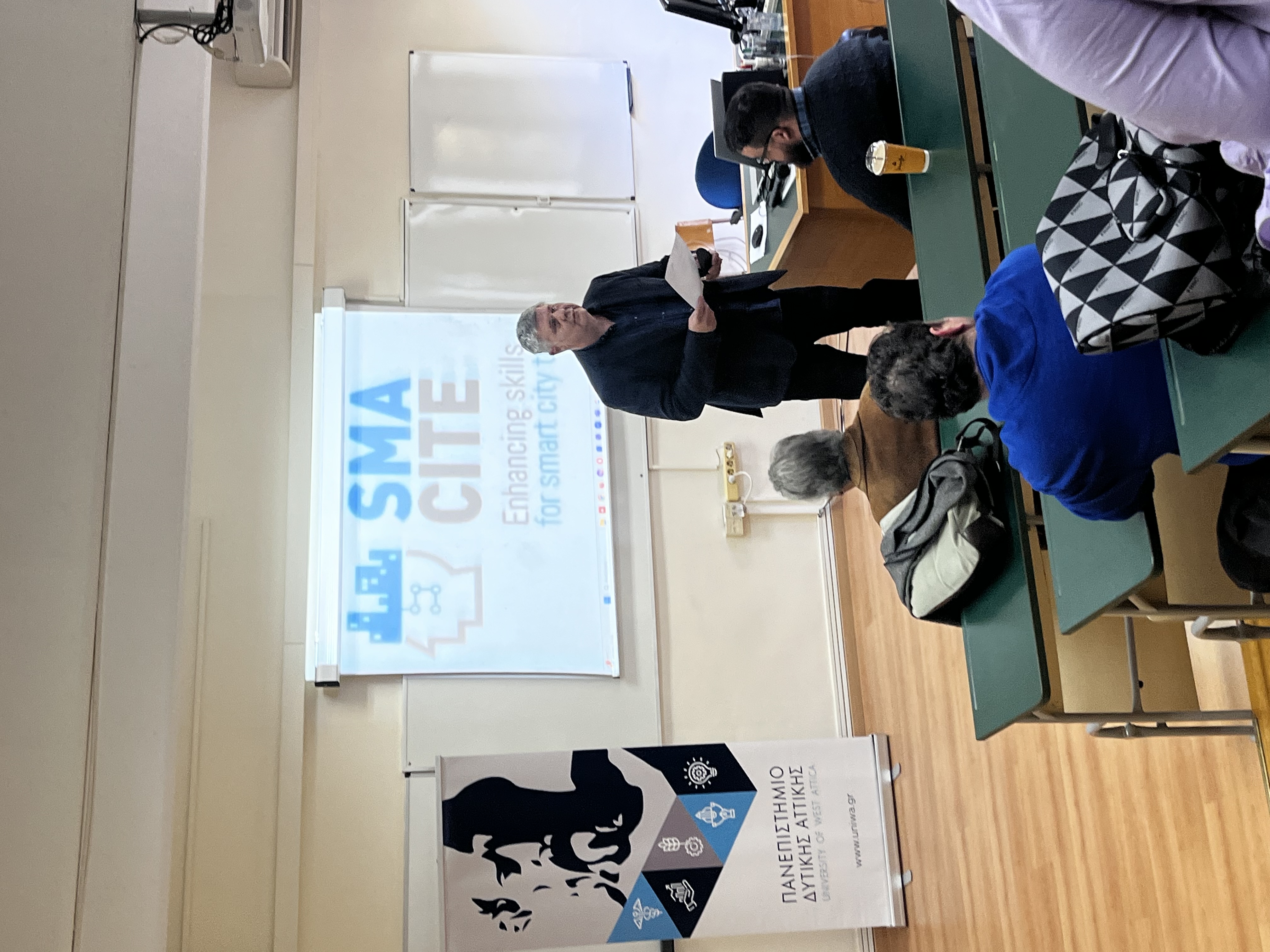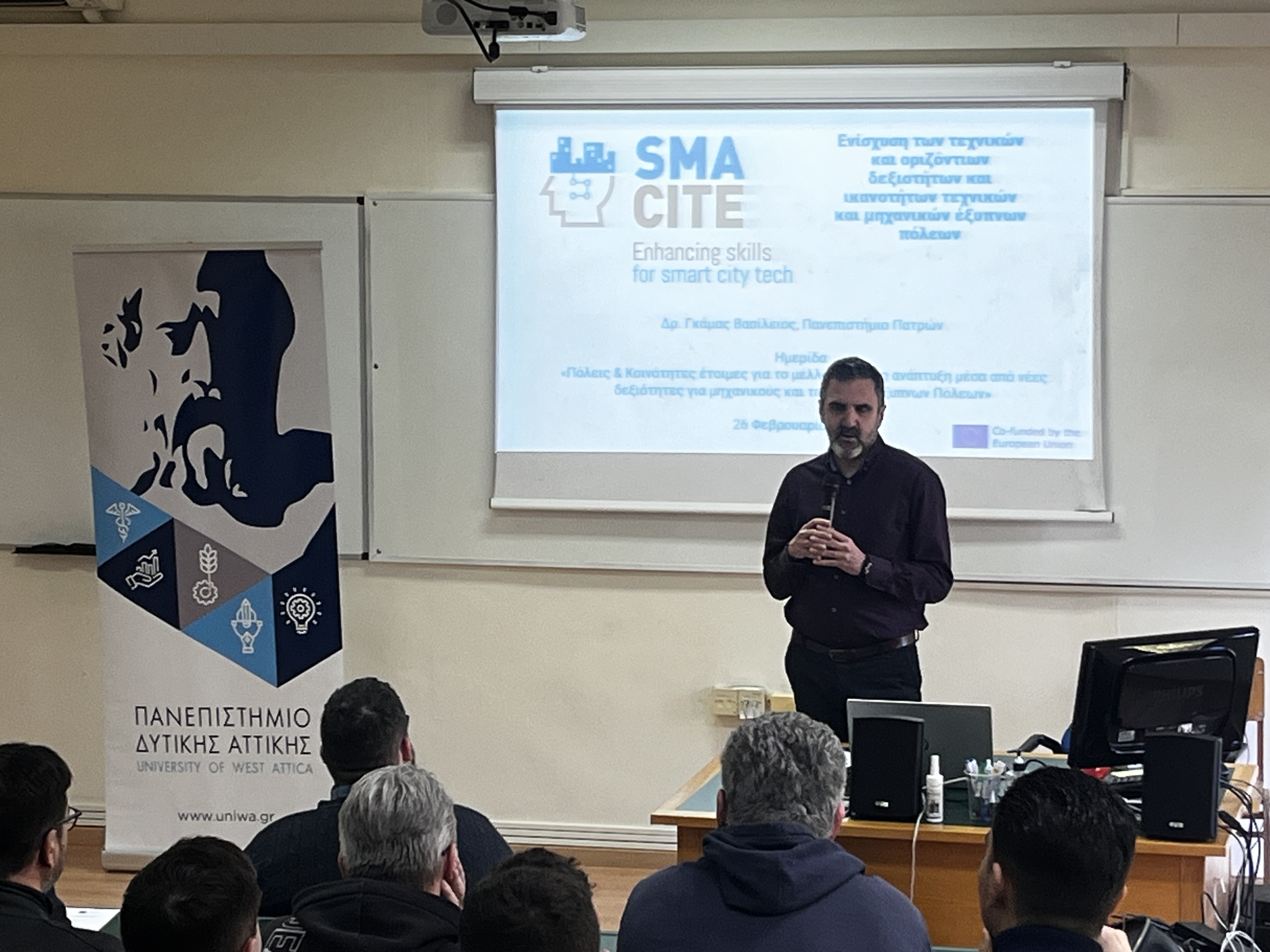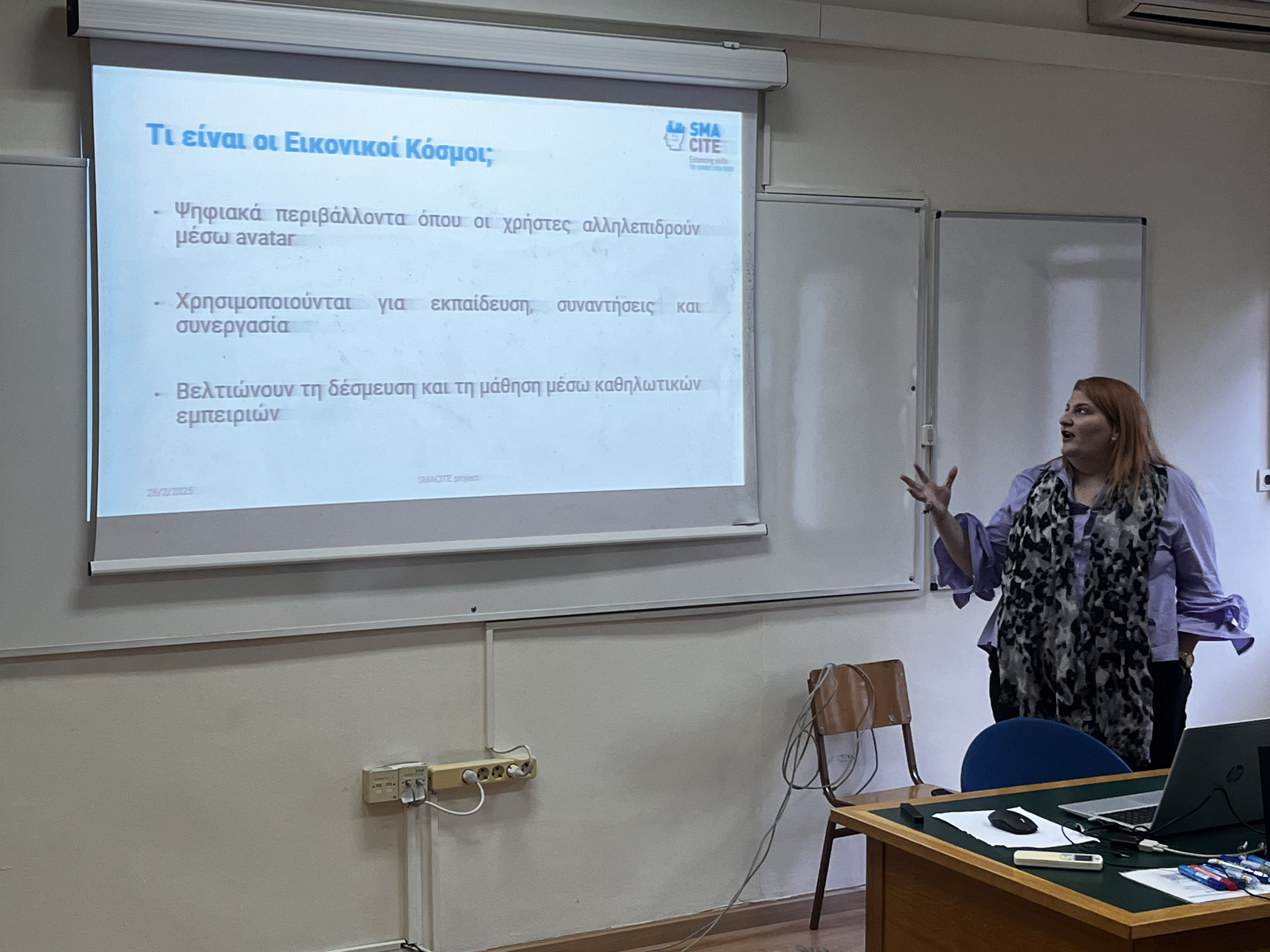2nd SMACITE national workshop in Greece
The second SMACITE national workshop in Greece took place at the premises of the University of West Attica on 26th February 2025.
The workshop was an engaging and forward-thinking event that brought together academic experts, industry partners, and practitioners to explore innovative approaches for urban development. Drawing on the diverse presentations outlined in the invitation, the event provided a comprehensive overview of both theoretical frameworks and practical applications in the smart city domain, ultimately paving the way for collaborative future initiatives.
The session opened with a warm welcome, setting the stage for a day of intellectual exchange and networking. Following the greetings, Professor Maria Rigkou from the University of Patras presented the SMACITE project, offering an in-depth look at its vision and implementation strategies. Her presentation described the importance of integrating cutting-edge technologies into urban infrastructure while ensuring that such advancements contribute to sustainability and quality of life. The SMACITE project was portrayed as a multifaceted initiative aimed at driving smart development by leveraging new digital skills among engineers and technical experts.
Building on this foundation, Professor Ioannis Vogiatzis from the University of West Attica discussed the economic and environmental impacts of smart cities. His analysis revealed that smart city initiatives can lead to significant cost savings through increased efficiency in public services, as well as reduce environmental footprints by optimizing resource management. He stressed that the transition to smart urban environments is not only a technological challenge but also an economic opportunity, requiring careful planning and investment to achieve measurable benefits.
The workshop then shifted to more practical applications with two consecutive presentations from VirtualNet. The first of these, delivered by CEO Dionysis Kozakis, focused on smart waste management systems. He demonstrated how innovative sensor technologies and real-time data analytics can transform waste collection processes, resulting in cleaner cities and more efficient municipal services. Shortly thereafter, Dr. Stelios Voutsinas from VirtualNet presented on smart parking management systems. His talk highlighted how digital solutions can alleviate urban congestion and reduce the environmental impact of vehicular emissions by streamlining parking operations and improving traffic flow.
After a brief networking coffee break, the workshop resumed with a presentation by Dr. Vasilios Gkamas from the University of Patras on open massive online courses (MOOCs) for smart cities. His session was particularly forward-looking, outlining how accessible digital education platforms can democratize the knowledge required for smart city development. By providing comprehensive learning opportunities to a wider audience, MOOCs can empower professionals and citizens alike to contribute to urban innovation.
The final presentation was delivered by Georgia Griva from Unicert Certification Solutions. Focusing on virtual worlds in education, she shared the transformative experiences gathered from the SMACITE project. Her insights illustrated how immersive technologies can revolutionize training and professional development by creating interactive, simulated environments that enhance understanding and skill acquisition.
The concluding segment of the day featured a dynamic discussion session, where participants engaged in a Q&A to clarify complex issues and deliberate on challenges such as scalability, interoperability, and sustainable financing. The interactive dialogue allowed for the cross-pollination of ideas, and the subsequent evaluation session confirmed that the workshop had successfully met its objectives by inspiring new collaborations and laying the groundwork for future smart city projects.
Overall, the workshop not only showcased the latest advancements in smart city technology but also emphasized the need for continuous innovation and education. It provided valuable insights into how smart applications can reshape urban environments for the better, ensuring that cities and communities are well-equipped to face the challenges of the future.


